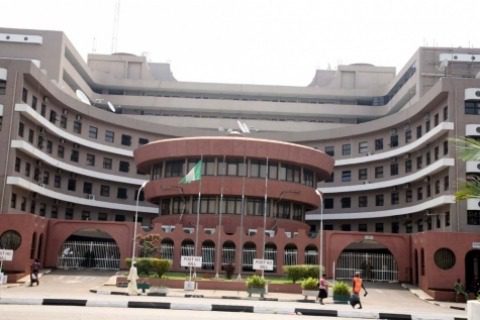Democracy & Governance
Civil Servants As Public Liabilities? -By Femi Babatunde


Time it was when the nation’s civil service could boast of the finest traditions of service. Not anymore. It is a shadow of its old self today. As an institution, it is now largely enmeshed, rather ashamedly, in a cesspool of corruption, incompetence, nepotism, and all the similar negatives adjectives you could get. Ever heard the sobriquet ‘Evil servants’? That is how far we have come!
It is very regrettable that while the more serious nations of the world are busy entrenching dynamic institutions that would advance national interests, our leaders seem to have perpetually chosen the pathway to mediocrity in nation-building.
Globally, the civil service as a fundamental institution of government provides the solid foundation upon which societal yearnings, aspirations, dreams and vision are realised. It is that statutory enclave volunteered by the people to coordinate the day to day running of the people’s commonwealth. Unlike the political class whose operation and place in government is tenured, the civil service enjoys the rare thrust of permanence that enables it provide administrative stability. Hence, the progress of nations is tied to the operations of the institution of the civil service. It should not be surprising that many of the leading nations and economies of the world have some of their brightest brains retained in the civil service with work ethics that naturally wire them to truly serve the people.
It is indeed worrisome that in this era of vaunted ‘change’, the civil service is still a loose uninspired institution in need of urgent reform. For without this it cannot provide the requisite intellectual and moral base upon which the evolving dream of a greater nation can be built. But do those in authority realise the centrality of an urgent revolutionary reform in the civil service?
Nigeria is what it is today because of the active connivance of the civil servants and the often clueless political class to rape the commonwealth of the State. Anyone familiar with the bureaucracy of the civil service would know that it is absolutely impossible to consistently thrive in plundering the nation without some civil servants actively showing the way!
As it has been severally argued, the incursion of the military regime in Nigeria meted a great damage to the patriotic spirit the Nigerian civil service was known for. Of particularly reference here was the 1975 mass purging of the service under Gen. Muritala Muhammed regime and similar subsequent attacks, that have only dealt monumental damage to the moral rectitude of the civil service; in that, as Ambassador Dapo Fawora, one of the nation’s finest diplomat and intellectual, argued in his memoir Lest I forget, it occasioned the lowering of standards and loss of morale and commitment of civil servants. Meritocracy was utterly sacrificed while mediocrity, nepotism, tribalism and corruption were entrenched.
However, one could also safely argue that the return to civil rule in Nigeria since 1999 has not in an anyway left the civil service better. It has even left it worst, I would submit – so much that the service today has become most unattractive to some of our brightest brains, as it was decades earlier. As a matter of fact, the reason many citizens associate with many agencies and ministries of government today is that they are one bunch of necessary evil. To carry out even the most minor transactions in some offices without greasing the palms of attendants, is almost unthinkable. Bribery has become a lifestyle in many offices supposedly established to serve the interests of the public. You don’t need to be told that the rest of the world has since left us to our own ways in a wholly digitally-driven knowledge economy!
The estimation of civil servants by the political class is rather unfortunate. For them, the civil service is only a tool for political advantage during elections and thereafter. In many instances, civil servants are used by unscrupulous politicians to advance their flawed interests. Of course, they also serve as compasses when it is necessary to steal and also cleverly cover the tracks.
In many states of the federation and even at the federal level, it is disheartening to note that merit has given way to ‘man-know-manism’. What you get in the system is no longer what you deserve but how well positioned and aligned with the political party in power. Promotion, in many instances, is now a herculean task that only the ‘connected’ can pull. The non-partisan code is only a reality on the pages of paper and without relevance in practice. For those at the federal level, your ethnicity, not your competence and track record is a determining factor, at least not with the federal character doctrine.
The age-long saying that a labourer deserves his reward no longer holds true in our case. And that is why workers are owed several months of salary in many states. The economic recession has only worsened things.
The result is that the defining attribute of service for the good of the nation is now being jettisoned by many a civil servant. They seem to have discovered that it does not make much sense, after all, serving the nation when it consistently fails to meet one’s needs. You should not be surprised to know that several civil servants today are ‘proud’ saboteurs of government programmes and activities. I was in an office recently and saw a woman hawk ‘panla’ (dried fish) to that office. I was alarmed when her colleague told me that the woman was a worker in the same government establishment, but now uses the time that ordinarily should have been devoted to serve the government to pursue her own business. Would you blame her? How else is she expected to survive when her employer has refused to pay her salary? This is the typical situation in many government establishments today. The civil servant who ordinarily should be an advocate of change and continual progress of the collective good and dreams has become a public liability.
In many of the states where salaries are not paid, people hardly go to work regularly, knowing their salaries will not be paid anyway, or at least, not any time soon. And when the salaries are eventually paid, as the labour unions consistently demand, even when no work is done, the country is the biggest loser. But really, which society actually progresses this way when money is paid for the work not done? Where is the dignity of labour in this? What we seem to be entrenching by the day is the culture of waste, impunity and laziness.
The recent news by the Imo state government that workers are now free to come to work for only three days a week, while they may engage in farming or do whatever they like for the remaining two days, is to say the least, worrisome. As seemingly ‘innovative’ as that may sound, the legality of it is still in doubt. The 1999 constitution indicates that employees of the state are expected to put in a minimum of 40 hours weekly.
I am convinced that it is high time we all demanded for the complete overhaul and restructuring of the the nation’s civil service in its entirety. A state of emergency on this must be declared forthwith. The last show of shame with the controversy generated from the imbroglio that resulted from the 2016 budget preparation is a good case in hand. Any reform embarked upon by the government at this point that leaves the operation of the civil service out is only a charade. The current composition of the civil service in Nigeria is not yet sufficiently wired to bear the ‘weight’ of revolution that the nation is urgently in dire need of; not to talk of spearheading it. Hence, constructive attention must now be channeled towards the rebuilding the civil service. A flag-off could be signaled by the harmonisation of all the reports earlier produced on the restructuring of the civil service with definite actions taken. Failure to do this is to court bigger disaster for the nation.
Femi Babatunde wrote in from Osogbo.













![The EU is punishing Turkey for an operation that it felt forced to embark on as a result of their own questionable decision to partner with the YPG in the fight against ISIL, writes Bakeer [Reuters]](https://www.opinionnigeria.com/wp-content/uploads/2019/10/The-EU-is-punishing-Turkey-for-an-operation-that-it-felt-forced-to-embark-on-as-a-result-of-their-own-questionable-decision-to-partner-with-the-YPG-in-the-fight-against-ISIL-writes-Bakeer-80x80.jpg)




